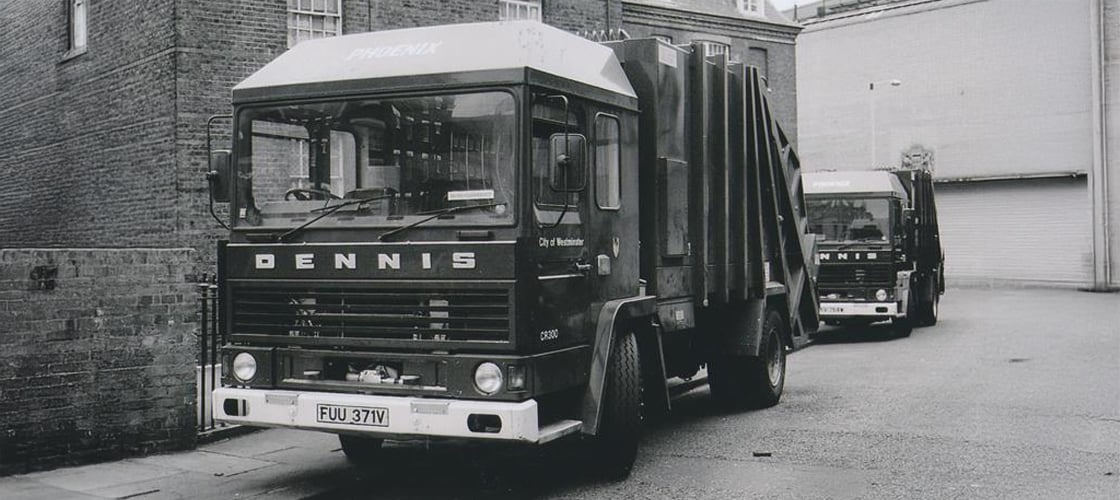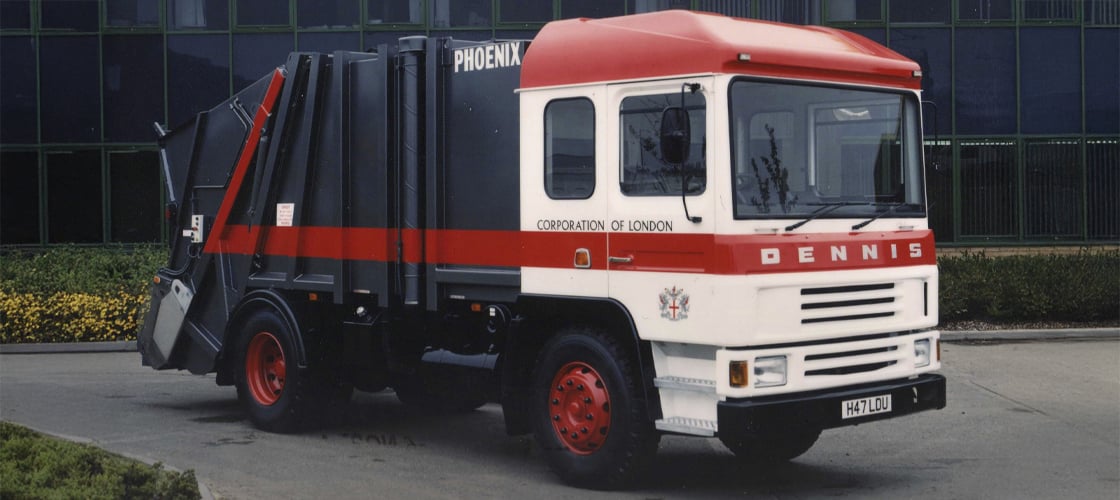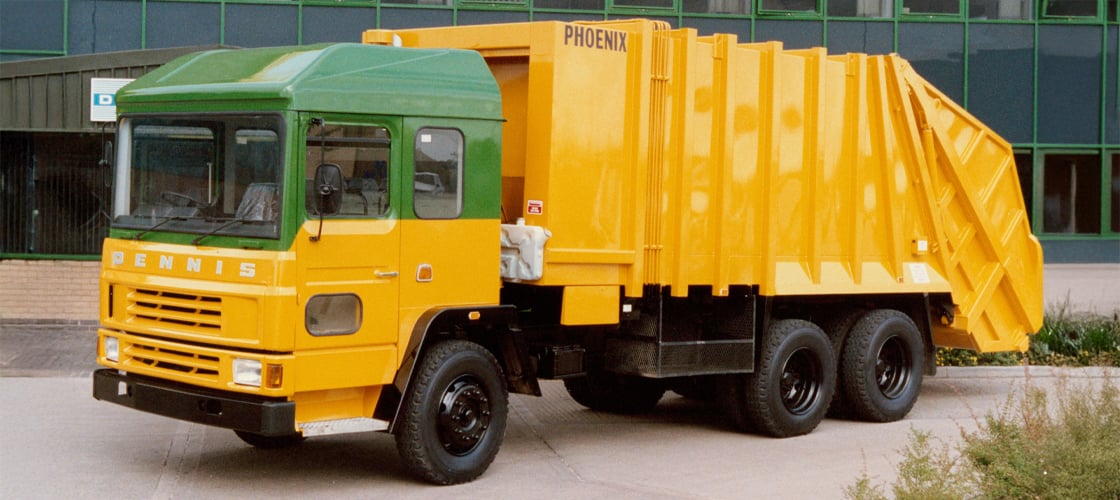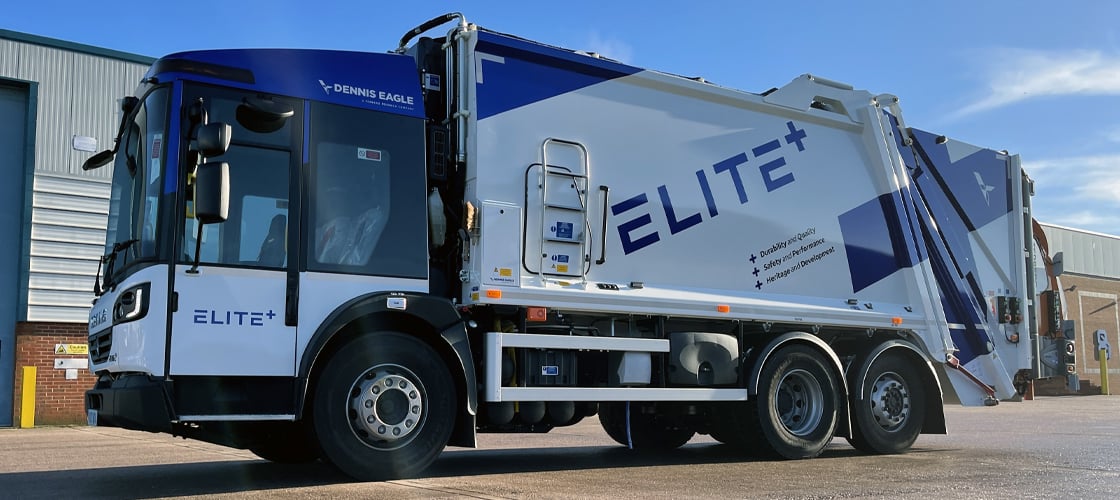From 1907 – 2025: Dennis Eagle and Terberg Matec UK through the ages

The initial catalyst for change that would shape the future of Dennis Eagle as we know it took place in the 1970s. Eagle Engineering made the informed decision to hone its focus into the design and manufacture of RCVs exclusively, catering solely for the municipal and commercial waste industries. Acquired by Hestair Group, who subsequently also bought Dennis Motor Holdings, it launched the Phoenix refuse body in 1977, a critical product that provided exceptional packing and payload capabilities for waste collection crews. This was the first crucial step in our exciting trajectory towards becoming a market leader.
Almost 10 years later in 1985, now named ‘Hestair Eagle’, the factory in Warwick responsible for developing its Phoenix refuse bodies was sold to Sainsbury’s for redevelopment. At the same time, a decision was made to move the Hestair Dennis municipal chassis production from its Guildford site to Warwick, the start of the end for the business’ production of chassis for buses, coaches, and fire engines. Hestair Dennis later acquired Duple Coachbuilders, moving all cab manufacturing to Blackpool. With the introduction of a new plant in Heathcote Way, Warwick, later that year, Dennis Eagle was finally born.

Revolutionising refuse collection
This 350,000 square foot factory became the world’s first complete refuse vehicle manufacturing site. From this plant, a new, improved version of the Dennis Delta was launched in 1989, the first major chassis project undertaken by the new team of engineers at Dennis Eagle. A significant year in many ways, 1989 also marked the beginning of Terberg Matec UK. Established by Terberg Environmental Group’s CEO Godfried Terberg, the very first Terberg Matec UK bin lift systems soon made their debut within the UK market.
Back at Dennis Eagle, a major innovation represented another turning point for our business. In 1992, the Elite cab made a big impression on the industry, debuting in June at The Institute of Waste Management’s exhibition in Torquay. Followed closely by the Elite 2, it revolutionised safety for drivers and crews thanks to unique low-entry features which enabled easier entry and exit during collection rounds. The early 2000s offered the opportunity for further innovation as wheeled bins were introduced across the country, requiring an RCV tailgate that enabled the fitment of bin lifts. This paved the way for our Phoenix 2 smooth-sided refuse body and got us noticed by RosRoca, a waste management machinery manufacturer based in Spain, who purchased the business in 2006.
After acquiring Will Engineer Ltd, a specialist body builder and recycling vehicle manufacturer, at the turn of the millennium, the Terberg Matec UK product line expanded further to include multi-compartment specialist recycling vehicles. This led to an investment in our Highgrounds site in Worksop, a facility dedicated to specialist recycling vehicle bodies along with a service workshop built to oversee everything from LOLER inspections to full body refurbishments.

The next generation
Nearly a decade on, we pioneered the next generation of refuse collection bodies by introducing the Olympus. Taking over from its predecessor, the Phoenix 2, the Olympus has now become the body of choice for many of our customers, with our Narrow variant proving particularly popular. Around a similar time, Terberg Matec UK officially launched its electric bin lift, a game-changing innovation that offers almost silent operation and impressive carbon savings, meeting growing demands for more sustainable refuse solutions. 2013 saw our Elite 6 cab enter the market with a keen focus on operator safety, comfort, and efficiency, giving drivers more control and visibility than ever before.
In 2016, another huge change defined the future direction of the business: our parent company RosRoca merged with the Royal Terberg Group, a global expert in the development, production, and modification of transport vehicles and systems based in the Netherlands, to form the Terberg RosRoca Group. Very soon after, Terberg Matec UK became a trading division of Dennis Eagle Ltd, bolstering the combined strength and experience of both companies.

Entering the electric era
When the UK government’s net zero target and legal commitment to end its contribution to global warming by 2050 was first introduced in 2019, interest and demand for electric vehicles across the UK spiked as a result. This inspired us to develop the eCollect in 2020, our first 100 per cent electric RCV, a vehicle that combines the industry-leading attributes of our renowned RCVs with all-electric operations. We continually seek opportunities to develop these electric capabilities, helping customers get closer to their own sustainability goals.
Our Terberg Matec UK Warrington office also enjoyed significant change at this time, moving to a new 2,100m2 facility which houses a state-of-the-art service call desk, bin lift system commercial office, and fit department for bin lift, weighing, and RFID systems. Soon after in 2022, the Terberg RosRoca Group became Terberg Environmental, the environmental division of the Royal Terberg Group specialising in waste handling and recycling collection worldwide. The Elite+ cab was also launched in 2022, further revolutionising the gains made by our Elite 6 with enhanced safety features and an even more intuitive design.
Flash forward to today, Dennis Eagle and Terberg Matec UK are industry leaders for RCVs and specialist recycling systems in the UK. Our proven, cutting-edge technologies are also exported overseas to support waste collection on a global scale, with customers in Europe, Scandinavia, and Australia. Driven by a shared commitment and vision to deliver innovative refuse collection solutions for safer, cleaner communities, we now produce more than 1,000 RCVs every year.